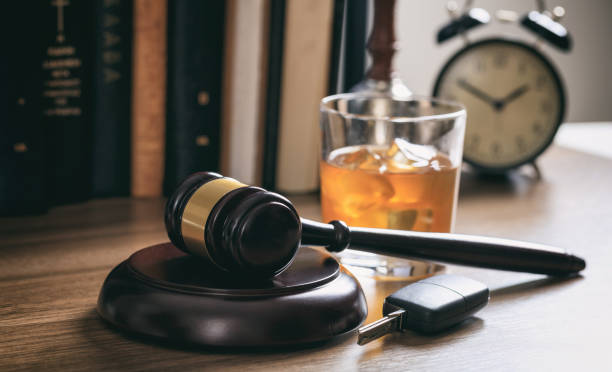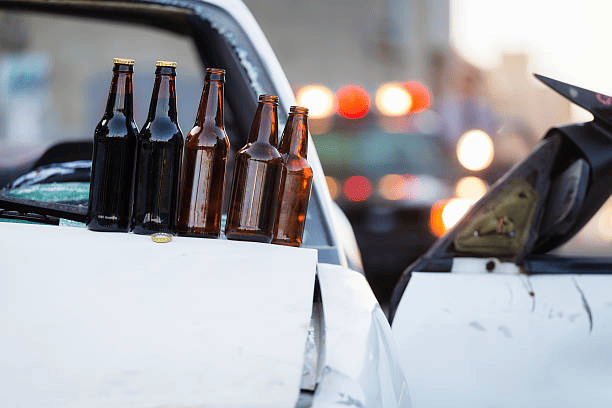In NSW, high range PCA offences cast a dark shadow over our roads. Every year, thousands of individuals face injury in alcohol-related crashes, and sadly, we can attribute nearly one-third of all road fatalities to this preventable crime.
The legal consequences of drink driving are severe, serving as a stark reminder of the gravity of this serious offence. However, the true cost of drunk driving extends beyond these penalties, encompassing the immeasurable loss of life, the enduring pain of victims, and the financial burden it places on society.
What Is a High Range PCA Offence?
PCA is abbreviation for “Prescribed Concentration of Alcohol.” On the other hand, BAC means Blood Alcohol Concentration. This means the level of alcohol in your system at the time of driving a motor vehicle.
A high range PCA offence is when authorities find a driver to have a BAC above 0.15. If a police catch you driving your vehicle with a BAC above that level, you may face heavy penalties as illustrated below.
To know more about BAC levels and tests used by police officers, you can read our article about mid range PCA offences.
Penalties of a High Range PCA Offence
| Penalty | First offence | Second or subsequent offence |
| Maximum court-imposed fine | AUD 3300 | AUD 5500 |
| Maximum prison term | 18 months | 2 years |
| Maximum disqualification | Unlimited | Unlimited |
| Automatic disqualification (a disqualification period that applies in the absence of a specific court order) | 3 years | 5 years |
| Immediate licence suspension | Yes | Yes |
| Subject to an alcohol interlock order | Yes | Yes |
High Range PCA Offence: Alcohol Interlock Order
If you face a charge of a high range PCA offence, you will be subject to an alcohol interlock order. The Alcohol Interlock Program (AIP) in NSW is a mandatory program that requires drink driving offenders to install an alcohol interlock device in their vehicle. The device prevents the vehicle from starting if the driver’s blood alcohol concentration (BAC) is above 0.0.
The AIP aims to reduce drink driving recidivism and improve road safety. The program has been shown to be effective in reducing repeat drink driving offences by up to 60%. If you are required to participate in the AIP due to a driving offence, you must comply with all of the program’s requirements.
This includes providing regular breath samples to the interlock device and attending any required appointments with your interlock provider. Failure to comply with the program’s requirements may result in suspension or cancellation of your driver’s licence.

Sober Driver Program
An alternative to the AIP is the Sober Driver Program. If you’re convicted of a high range PCA offence, you can ask the court for an interlock exemption order rather than participate in the Alcohol Interlock Program.
The Sober Driver Program is for drink driving offenders who have received an interlock exemption by a court. This program consists of 20 hours of group therapy to help you:
- understand the consequences of high range drink driving (for yourself and others)
- understand the events and decisions that led to your major traffic offence
- create and use strategies to prevent you from offending again
- develop skills and positive attitudes for safe driving.
The Program will provide you with a Certificate of Completion once you finish the 20-hour course requirement. You must keep this certificate because you will need to submit this to Transport NSW when you apply for a new licence.
The court may give you the exemption instead of the AIP requirement due to a high range PCA offence if you can prove that:
- you don’t have access to a vehicle to install the device, or
- you have a medical condition which stops you from using the device.
However, there’s a downside to this exemption order:
- you will face cancellation of your licence, and disqualification from driving
- you’ll need to complete the Sober Driver Program (at your own expense) during your disqualification period
- you’ll need to complete the disqualification period before you can apply for a new unrestricted driver licence.
Refusing High Range PCA Offence Test
The mere refusal to do a saliva, blood, or urine test imposes a heavy penalty upon the offender. If the police asks you to provide such samples, you need to, by law, produce it, especially after a fatal crash.
The penalties for refusing a breath test or analysis for high range PCA offence in NSW include:
- Fine – Up to $3,300 for a first offence and up to $5,500 for subsequent offences.
- Imprisonment – Up to 18 months for a first offence and up to 2 years for subsequent offences.
- Automatic Disqualification – 3 years for a first offence, which may be reduced to a minimum of 12 months, and 5 years for subsequent offences.
- Immediate Licence Suspension – Both a licence suspension and disqualification prohibit driving for the specified period. While a licence suspension can be imposed by the RMS or NSW Police without a formal criminal conviction for the offence, a licence disqualification is imposed by a court as part of the penalty for a formal conviction.
These penalties are significant and a conviction for refusing a breath test or analysis will result in having this offence noted on the criminal record and having the licence disqualified.

Consult with a Traffic Offence Lawyer
Drunk driving is a completely preventable crime. Here’s what you need to remember:
- If you are going to drink, do not drive.
- Plan your night out so that you have a safe way to get home.
- Use public transport, catch a taxi, or get a lift from a friend.
- Stay at a hotel or motel near where you are going out.
- Drink in moderation or not at all if you are going to drive.
By making the responsible decision not to drink and drive, you can help to keep yourself, your passengers, and other road users safe. If you face a charge of a high range PCA offence or you want to sue someone, you can talk to us at JB Solicitors and our traffic offence lawyers will cater your legal needs.
Contact us today if you have a drink driving charge or drink driving offence.
